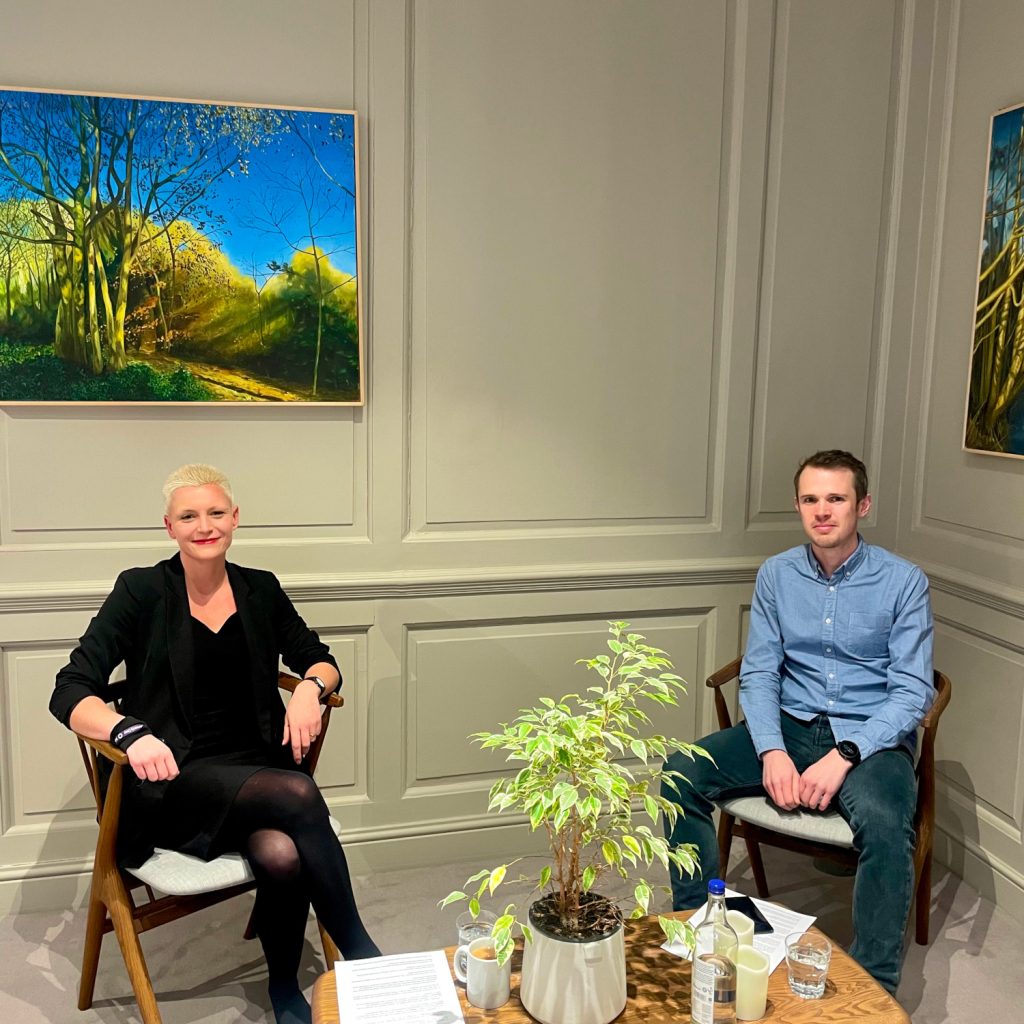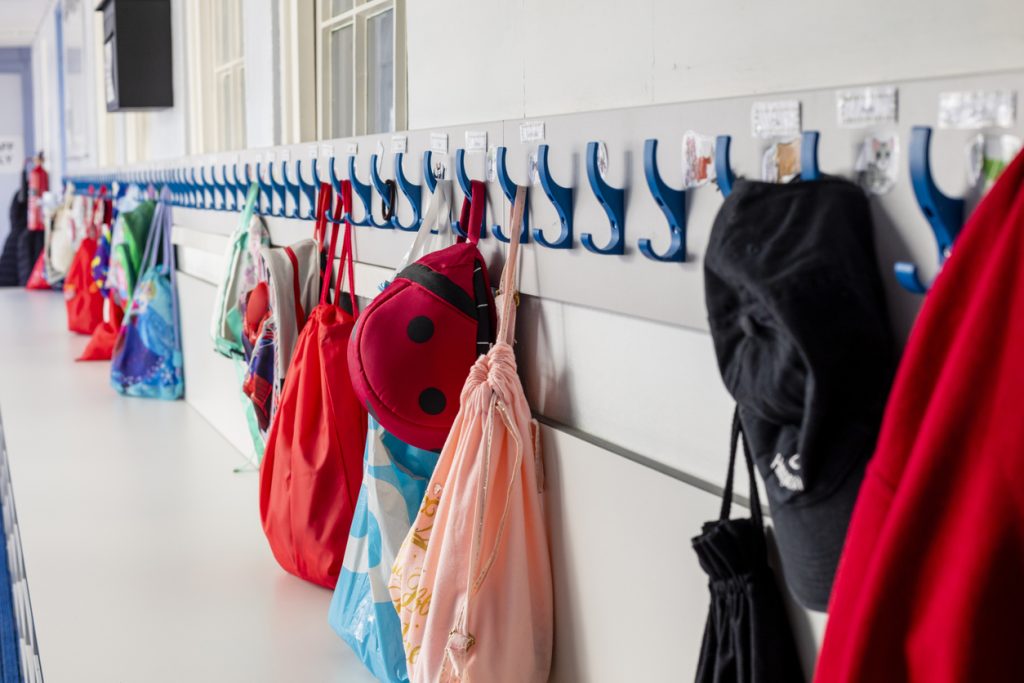The Lawbore practitioner interview: Helen Compton (7BR)
Lawbore would like to thank City alumna Christianah Babajide for helping arrange this interview and being our photographer on the day. Helen Compton is a family and employment barrister at 7BR, a leading set of chambers with clients in the fields of civil, criminal, family, public and employment law, and studied the Bar Professional Training Course (BPTC) at City.
Which area of law did you like the most and least at university?

I enjoyed criminal and, weirdly, I really liked equity and trusts. I didn’t find it as dry as other people found it – I enjoyed the challenge. I also found adverse possession interesting in land. Funnily enough, I didn’t enjoy studying the two subjects that I now specialise in [employment and family]. The family side focused a lot on financial remedies, which I wasn’t interested in. Also, I think it was my worst module of the degree, so I’ve got bad memories of it. I didn’t really want to do law at university. I ended up applying to do law and politics because it was shortly after tuition fees were introduced and my mum encouraged me to do a subject with an obvious career path. I do regret perhaps not having done an undergrad in history or philosophy, then the GDL. While I enjoyed law, I felt that it largely relied on having a good memory [We inform Helen that it no longer does, as our exams are open book.] What’s the point of that? I’ve always preferred closed book. If the book were there, I’d feel under pressure to look at it and probably end up wasting time.
How did you go about securing pupillage and what would be your advice for aspiring barristers in that regard?
I think most of it is luck. I had a couple of mini-pupillages but no real experience. I was interviewed for pupillage before I started the BPTC, so when it came to interviews, particularly with ethical questions, I would be relying on what I had seen on Rumpole. For 7BR, I had to do a legal problem that I was asked about at the interview. I hadn’t done as much law as other people, but those sorts of tasks show the way you think and research. If a chambers has a problem like that, do it thoroughly and think about it holistically, because that can really set you apart. Many applicants have top grades but chambers want to see how you deal with a practical problem. Some people do amazing things like working at The Hague, but much of the job is trekking up and down the country, going into cells and representing people who are really disadvantaged and can be difficult to deal with, and might shout and swear at you. It’s not glamorous; it doesn’t often involve complicated legal arguments. It involves schlepping about and being somebody people can trust, and presenting a case as clearly as you can in difficult circumstances. In interviews, people might say, ‘I was very impressed by this clinical negligence case that changed the law’… well, you’re not going to be doing that for a long time, potentially ever. You don’t necessarily have to be Jonathan Sumption to get pupillage – you just need to be a competent lawyer. [That will be a relief for many of those applying for pupillage…]
Which case are you most proud of, or which one springs to mind and why?

I did a Court of Appeal case in December, which I was proud of because it involved appealing a case management decision and that can be difficult. I got the brief at 6pm and it had to be in the following day. We won the appeal, so it will hopefully have an impact on the proceedings for that child and potentially more widely. There was one I did very early on, an employment case alleging direct race discrimination against black African employees by a large hotel chain.
Discrimination is really hard to prove, but somebody from the hotel had leaked the pay statistics for everyone in the company across the country. The claimant I was representing had such good knowledge of every employee that he could identify who they were and their ethnicity from their initials. We won that case, and they found harassment and victimisation. But it wasn’t just the fact that he got a significant financial award; it was the fact that the tribunal said the hotel chain had to implement various changes such as monthly equality meetings. Hopefully, that changed the culture of the company. Those sorts of cases show how important the job is.
It’s interesting that law is the only profession where you need to justify your existence by doing reduced fee or pro bono cases. It’s not expected in any other career…
No, that’s a good point. You don’t see bankers doing anything like that … Most of mine is legal aid and I was listening to an interview with another barrister, who said, ‘Oh, I do a lot of legal aid’. But that’s not the same as pro bono. Although, if someone has a predominantly commercial practice, legal aid rates might seem like it. In family, you earn ample doing legal aid work, but I don’t have six children I’m sending to private school and a villa in Italy. It’s all relative.
You went to a non-selective state school, as I did. Do you feel there is enough diversity of educational background, particularly among barristers?
We did a survey in chambers and I was surprised by how many were from state schools. I think that is not the case across the Bar. Obviously, it should be more representative of society … You’re not taught to have confidence if you come from a state school, certainly not a deprived one, so why would you believe you can succeed against people who have had a far better education? The Bar needs to do more to help change all that, because they are not going to be getting rid of private schools any time soon.
It’s more than just that, as well, because people move houses to get into the best state schools…
Exactly. I grew up in Suffolk and we just had three schools, they were all rubbish and you went to one of those. I was amazed when people who didn’t even have kids yet were buying a house because it’s where all the good schools are. I think going to a state school makes you better prepared for a career at the Bar anyway and, if you succeed from a difficult school, your work ethic is going to be quite high. Part of being a barrister is being very self-disciplined, knowing how to conduct your own research, knowing how to make your own connections… and people from state schools will usually have those skills if they’re being interviewed for pupillage.
Do you think there is enough support for women at the Bar who have children?

Chambers is really good, but at the end of the day, we are self-employed barristers; we don’t get maternity pay and the job, say if you do family and crime, involves going to court every day, so I don’t think there is much that can be done to change those problems. A game-changer was actually the remote hearings during Covid. A remote hearing means I can take my daughter to the childminder, get home and do a hearing. While I agree that we should be back in court as much as we need to be, I think judges should be open to anything that can be done remotely, because it really helps women at the Bar. Otherwise, they’ll leave or do some other area of law.
What sort of cases could be done remotely?
In crime, it is difficult, because of the jury, and in family, a lot of people don’t have laptops and the clients may not have a phone, so remote can be more difficult. You have to assess each case, but with case management, legal argument and hearings involving people who are well accustomed to using electronic devices, I don’t see why they can’t be remote.
I suppose you could put a creche in chambers?
That is something you could do. I think some chambers pay people on maternity leave, although you’d have to get everyone to agree to that. But it’s certainly the case that lots of women, when they reach 30, leave chambers and go in house somewhere.
Do you think those women come back?
Some might, but I think the majority don’t. With kids, particularly with the nature of the job, you don’t know where you’re going to be next week, so it’s hard to manage your life, it’s hard to plan. And a lot of people don’t like that uncertainty.
What more do you think needs to be done to speed up the pursuit of equality at the Bar?

I don’t think recruitment is the issue, I think it’s retention. Because [the figure for] women in pupillage is now more than 50%. There isn’t a problem as a woman at the Bar, it’s the issue of childcare, so society probably needs to change with our attitudes towards childcare first, but judges could do more to help … I don’t think there is an obvious solution to retain women. Ultimately, women will often go into more civil areas of law, where they don’t have to go into court a lot, because you’ll mostly do papers then. And if you haven’t got the travel, it is easier.
Do you find any of the family cases you deal with distressing?
It can get a bit demoralising if you represent parents a lot and they are accused of very serious neglect. It’s not so much the one-off, physical injuries, it’s long-term neglect, because it’s the cycle … Most people I represent are women. They are people who have suffered trauma and the reason they parent in the way they parent now is because they have been abused, usually they have been in care, and it’s just a bit depressing because you see that nothing has changed for them, and now they’re having their own children removed, and that side of it can be very sad. My mum was a children’s guardian and my dad ran children’s homes, so I have been aware of the trauma that affects so many families for a long time, and perhaps that’s why it hasn’t upset me as much as it could have done. But you have to take a step back and remember your role in this.
Do you think what your parents did propelled you on to do this?
I didn’t do any family for the first four or five years quite deliberately, because my family had done it, but also because I thought that was what women were expected to do. So I wanted to do more crime, initially, then commercial, but family just drew me in, partly because it suits my skills better. I like being in court, meeting different people. I find it exciting.
What sort of advocate would you say you are? I know people have different styles and I’m sure there’s a BuzzFeed quiz you could take on it…
Really, you shouldn’t have an advocacy style that’s memorable. The questions should be good and get to the point. Anything about you as an advocate that detracts from the evidence the witness is giving is bad. I wouldn’t want the judge to come away thinking about a particular style; I’d want them thinking the evidence of that witness was shocking or revealing in a particular respect. Don’t remember me, remember the evidence [CK: You’re amplifying them?] Yeah. That’s what I would say would be my style. I have been told it’s aggressive, but I don’t accept that. Maybe I’ve just got an aggressive face!
Do you have any tips for City students on how to develop their cross-examination skills?

Go to court and watch people. Because of TV, people have this idea that someone is going to break down and reveal the truth. That doesn’t happen. It’s just about putting across your case. You don’t have to get the witness to agree with you. Sometimes, it’s not about what the witness does at all; it’s about bringing things to light so everyone is aware of them. You have to work out the best points for your case. Have an idea of your argument, your case theory and the main points, then work that way round. If you can show, for example, that a social worker has done something terrible, it may not be helpful to go down that route, because if it’s not relevant, you’re just wasting people’s time. Don’t ask questions for the sake of asking questions and don’t ask a question without having a good idea of what the answer is going to be.
Has there ever been a moment where you’ve been caught out… as in, I wasn’t expecting that?
Not with cross-examination, but I often overprepare. Because if you don’t and someone does give you an answer that you’re not expecting, you’re just going to be flapping about. It’s about thinking of everything they could say and what you’d say in response. I always used to be amazed how people could turn up in the magistrates’ court and cross-examine somebody having just got the statement.
Does that preparation process, not staying up all hours, get more streamlined as you get more experienced?
I very rarely work beyond 9pm. I tend to frontload, though, so if I’ve got a final hearing coming up, I would try to prepare for at least the first few witnesses, firstly because they could change the order and secondly because I don’t like working under too much pressure. But some people need the adrenaline of thinking they have to cross-examine tomorrow.
What is the most important lesson you’ve learned in your 12 years of practice?
Probably to trust my instincts. In the past, I might have sometimes gone along with a certain route because other advocates have agreed with it, but I’ve thought, I’m not sure, and the judge has said it is wrong. And you think, why did I not have more confidence in myself? Trying to build that up takes some time. Listen to people and be open minded, but if you have a niggling feeling, say so.

Did you find the healthy competition in chambers took a little getting used to?
I’ve not really found competition, even when I’ve been against people in chambers. I don’t go into a case thinking I’m going to win this; maybe I should! I just go in thinking I need to do the best job I can for the client. Perhaps, if you do crime or other areas, you see it more as a win or lose, but with family, you don’t have that attitude.
I suppose your liberty or huge sums of money aren’t at stake…
Just your kids… It’s not supposed to be as adversarial, it’s supposed to be getting to the best thing for the children. So even if you do ‘lose’, the judge made a decision that’s right for the kids. You don’t want the judge to make a decision and think you haven’t presented something important. So if I’m happy and I think the judge had everything they could have for my client, that’s doing a good job, because if the outcome is against you, the outcome is against you.
Which career would you have chosen had the Bar not come calling?
Journalism, probably. That was what I initially thought I would do when I started the degree. As I started doing the job, I was more interested in psychology.
Never been tempted to go into politics?
When I was younger, yes. I did stand to be a local councilor [in Suffolk] when I was very young. We lost but we got more votes than we did before… Since starting this job, it’s never tempted me. [CK: You would set yourself apart by actually having practised, unlike half the Cabinet] Even Tony Blair only made it to pupillage… There’s one who was – Anna Soubry? I think she was a barrister for a number of years but there’s not many… Keir Starmer? [CK: Oh yeah, most famously] Forgot him but mentioned Anna Soubry…
If you could go back and give yourself one piece of advice on your first day, what would it be?
To remember to make the most of times when things go well and not to get too bogged down when things don’t go well. You’ve got to be able to enjoy the highs and remember them, because other days you’ll feel like you’re terrible, you’re the worst barrister in the world. And sometimes you go through periods when you’re not very busy, and you think nobody wants me, and other times you’re so busy and really stressed… You need to remember that this is the way the job is going to be. There’s no happy medium and I wish I’d realised that earlier.

And with that, we decant (in more ways than one, to a bar for a debrief). That glamorous barrister lifestyle… Thank you to Helen for a really enjoyable interview and giving an insight into life at the Bar.
Chris King is a GDL student at the City Law School and future trainee solicitor. Former national newspaper journalist. Interested in environmental, media and public law.
